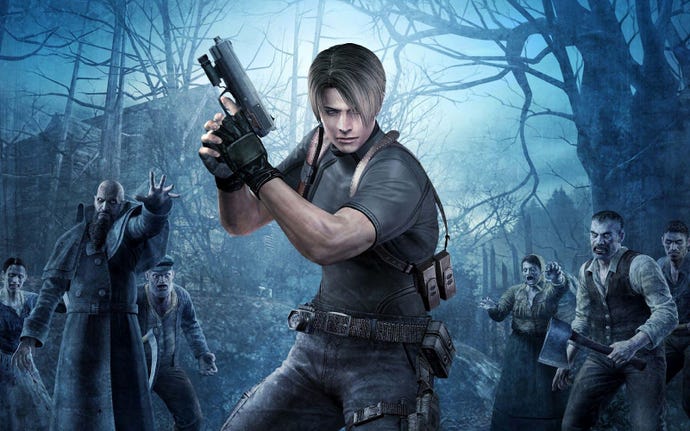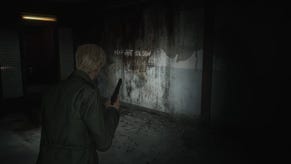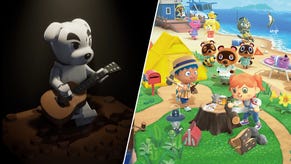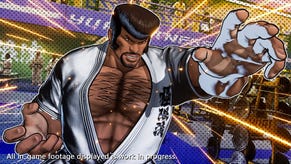Capcom has NFI what it's doing with Resident Evil
Resident Evil is a little lost lamb whose shepherd fell down a gully on its way home from the pub.
Resident Evil 7 is back on the radar after Capcom said it's planning a "full-scale assault" on Resident Evil fans and slipped an unannounced 4 million selling title into its schedule for the next 12 months.
This news, tenuous as its foundations are, has not generated the hype it would have raised even a couple of years ago. A new, core series Resident Evil used to be something to get very, very excited about, but at this stage we've all been burned too many times.
Resident Evil 6 was probably the last straw (although as with almost any game that was knocked around badly at launch, it has attracted a late stage fanbase who will defend it unto death, and probably turn up in the comments to give me a savaging for suggesting it wasn't exquisite). "We're going back to our roots!" Capcom cried. "Back in Racoon City. Back with Leon. We absolutely know precisely what we're doing, because we know what makes a good Resident Evil game, and so do you."
This was absolute nonsense. Hilariously, Capcom has vowed to return to its roots - again.
I went looking for a header image for a Resident Evil article yesterday and it struck me that in over 20 years (the first game released in March 1996) Capcom has not produced a single truly iconic image to capture the essence of the series.
If you browse images related to Resident Evil the most consistent theme is Leon or Chris standing in the foreground of a group of people posed staring off in different directions. Sometimes the background is blue or violet, and sometimes it's red - even that is inconsistent. The prevalence of this weak motif is indicative of Capcom's full awareness that nothing has ever gone quite as right as Resident Evil 4, but its attempts to recapture some of that spirit results in a very bland and forgettable visual identity.
There have been some wonderful covers and artworks along the way (the Revelations eyeball is quite good, isn't it?), but the most common, recognisable element of all the key art pieces produced and released by Capcom is Leon's floppy double cut.
Floppy hair is not a good design identity.
Obviously, branding isn't everything, but it is important, and other publishers seem to have no trouble nailing it for their flagship franchises. Compare and contrast with Assassin's Creed, Battlefield or even Call of Duty, where each of the families have their own visual identity so that you can instantly pick between a Black Ops and a Modern Warfare product.
The failure of Resident Evil's marketing to ever settle on a good, strong aesthetic to signify "this is Resident Evil" is a symptom of a broader problem with the franchise - Capcom doesn't know what in the heck its doing with it. It's never sat down and asked itself how it can nurture a winning formula. It doesn't know what the formula is. It doesn't have a plan. It just throws prototypes at the wall and hopes they stick.
The careless way Capcom has handled Resident Evil is actually rather charming. Mega publishers cynically incubate franchises expected to last for decades. They turn in blockbuster annual revenues and spawn huge transmedia empires. That can feel a little bit gross if you like to think of triple-A games as art or creative works first, and cynical money-making products second. It's uncomfortable to think of the hundreds of people who made your favourite game sitting down in meetings to argue about whether design decisions are going to part your target demographic from its money rather than whether something is fun or clever or inspiring.
Resident Evil didn’t come about through design by committee or market research. It was birthed during an era of furious creativity, when games were still relatively cheap to make and whole new genres popped up every other week. It was a weird experiment.
Resident Evil didn't come about through design by committee or market research, which is why we loved it so much. It was birthed during an era of furious creativity, when games were still relatively cheap to make and whole new genres popped up every other week. It was a weird experiment, and it succeeded because it released at a time when frustrating controls and trekking back and forth endlessly were considered challenging rather than rubbish design. We slapped the label "survival horror" on it, didn't bother to work out what that meant and why we liked it, and called it good.
Resident Evil didn't know what it was (is this a haunted house? A sci-fi story? A character-driven cop story?) but it made a lot of money, which in video games is a signal to hang on and keep flogging until your horse falls down out of exhaustion. Some of what gave Resident Evil its strong identity had to be chucked out as audiences came to expect such modern fancies as "not steering like a truck", and another publisher might have stopped to double check how many legs its mount had and whether they actually ended in hooves or not. But with each hardware generation Capcom's approach seems to have been to bolt on whatever limbs it could find and hope for the best. The resulting mish-mash of genres and half-assed systems is not unlike a T-virus experiment, which is rather appropriate.
Ah, well. It's probably okay that Capcom doesn't know what Resident Evil is because nobody else does either. We've talked about this before: the Resident Evil fanbase is hugely divided on what makes the series special and what must be exorcised, and nostalgia works equally powerfully on people remembering games ten years apart with totally different play styles.
Although Resident Evil 6 didn't make the money or get the reception Capcom expected, the franchise is probably not in any real trouble.
Evidence? The fact that Capcom can plaster its Tokyo Game Show booth with Umbrella Corps, a multiplayer game which has been shoehorned into the franchise, and attract lines that go for days - not to look at the shooter, but at the replica guns lining the booth. The Resident Evil fandom can't seem to get enough of the franchise even when its hibernating, vacuuming up merchandise, remakes and re-releases.
I made a joke in an article yesterday saying that I don't expect much more out of Capcom's 20th anniversary "full-scale assault" than Umbrella Corps and a new line of t-shirts, but it wasn't really a joke. Capcom may not deserve the fervency of this fanbase, but it has it.







-trailer---Sonic-%26-Knuckles.jpg?width=291&height=164&fit=crop&quality=80&format=jpg&auto=webp)



.jpg?width=291&height=164&fit=crop&quality=80&format=jpg&auto=webp)

.jpeg?width=291&height=164&fit=crop&quality=80&format=jpg&auto=webp)